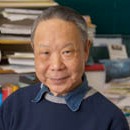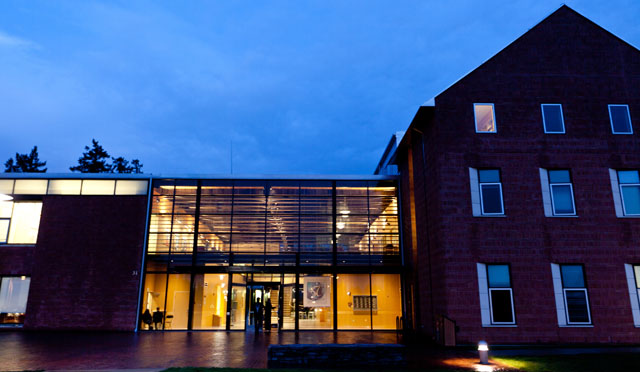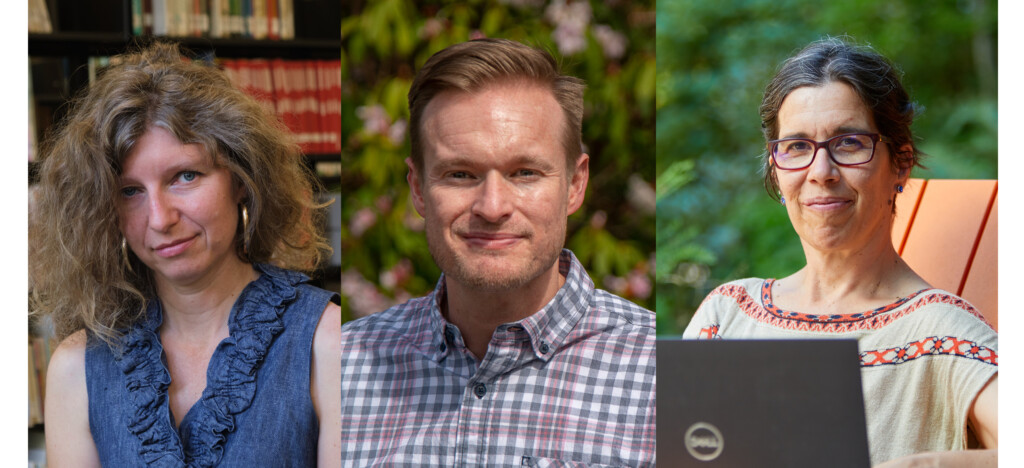Page 14 • (538 results in 0.035 seconds)
-
Engineering Program RequirementsIn order to earn a PLU degree through the Dual Degree program, the following requirements must be met: (1) Completion of the following science and mathematics courses (44 hours) MATH 151, 152, 253 (12 semester hours) MATH 351 or PHYS 354 (4 semester hours) PHYS 153 and 163, 154 and 164, and 223 (14 semester hours) CHEM 115 and 116 (8 semester hours) ENGR 131 (2 semester hours) DATA 133 or CSCI 144 (4 semester hours) More Information Dual-Degree Home Academic
-

Kwong-Tin (K.T.) Tang Professor Emeritus of Physics Phone: 253-535-7539 Email: tangka@plu.edu Status:Emeritus Professional Biography Education Postdoctoral Study, Chemistry, University of California, Berkeley & Harvard University Ph.D., Physics - Dissertation: "Elastic and Reactive Scattering in the (H, H2) System", Columbia University, 1965 M.A., Mathematics - Thesis: "Random Walk and Diffusion Processes", University of Washington, Seattle, 1959 B.S., Engineering Physics, University of
-
You Ask, We Answer: Do you have Engineering? At PLU, students can pursue engineering in two formal ways. Option 1 We offer a dual-degree engineering program through partnerships with both Columbia University (NYC) and Washington University (St. Louis). In this program, a student completes their introductory coursework in mathematics, science, and engineering as… February 24, 2023 AcademicsEngineeringFAQ'sPhysicsProfessorsSciences
-

affords.” Moving Math ForwardThe National Science Foundation recently awarded Associate Professor of Mathematics Ksenija Simic-Muller — in collaboration with professors from the University of North Carolina and University of Houston — a $299,993 grant under the Robert Noyce Scholarship Program. Simic- Muller and her colleagues across the country will complete a project titled “Supporting the Development of Mathematics Preservice Teachers’ Critical Consciousness through Statistical Investigations of
-

disciplines such as economics, mathematics and accounting. “Larger university faculties may not be able to coordinate across these disciplines like we do,” Boeh said. The masters program targets new and recent graduates, and is an intensive program that will take 10 months to complete, rather than the more traditional two years for an MBA, he said. Because of the small class size that is traditional at PLU, professors will have the opportunity to focus on the individual, he noted. The PLU MSF aligns
-

/South Puget Sound MESA at PLU. About the MESA Luncheon Date and time: 11:30 a.m.-1 p.m. Tuesday, June 17. Location: Chris Knutzen Hall, Anderson University Center. More information here. To register for the luncheon, click here. MESA (Mathematics Engineering Science Achievement) works to support underrepresented students in achieving and contributing their full potential in mathematics, engineering and science—and it does it well: More than 92% of MESA graduates go on to colleges and universities
-

affords.” Moving Math ForwardThe National Science Foundation recently awarded Associate Professor of Mathematics Ksenija Simic-Muller — in collaboration with professors from the University of North Carolina and University of Houston — a $299,993 grant under the Robert Noyce Scholarship Program. Simic- Muller and her colleagues across the country will complete a project titled “Supporting the Development of Mathematics Preservice Teachers’ Critical Consciousness through Statistical Investigations of
-

Scholarship grant from the National Science Foundation, the project seeks to encourage talented STEM (Science, Technology, Engineering and Mathematics) majors to become K-12 mathematics and science teachers. There’s a national shortage of these educators, especially in schools with high-needs student populations. PLU students Jimmy Aung and Jamie EscobarLeading a science class at Four Heroes Elementary as they explore the education through a grant funded program. PLU students Jimmy Aung and Jamie
-
Major Minute: Mathematics As a student in PLU’s Mathematics Program, ancient principles merge seamlessly with cutting-edge techniques, equipping you with the skills needed to comprehend and contribute to the latest developments in mathematics and statistics. Every course will empower you with the knowledge and insights essential for success… May 10, 2024 AcademicsMathematics
-
or mathematics Teaching science or mathematics in a high-need school district in middle school or high school for 4 years after completion of the Masters program Addressing education inequities Learning to teach in culturally sustaining ways Being a member of a cohort To Apply: In order to apply to be a CS-STEM Scholar for academic year 2024-2025, please submit: a CS-STEM Scholar Application, your resume, and 2 letters of recommendation regarding your commitment to teaching by March 1, 2024
Do you have any feedback for us? If so, feel free to use our Feedback Form.


